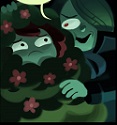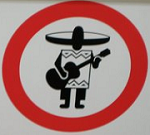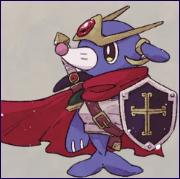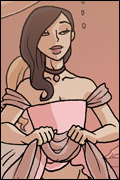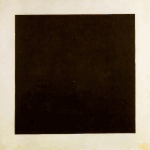|
HazCat posted:I like the idea of keywords determining factions. Could you perhaps make it less limiting by saying "all units in your army must share a keyword with at least X other units", rather than "use only two keywords"? That would allow players to build more complex armies while still having to make decisions, and you could test different values of X to find a number that makes the decisions as difficult as you want. Interesting, that might be something to try, though thinking about it, because the game is somewhat small scale on what is right now the normal point values (50 points, which is around 4 units in average sized squad) I don't think two faction squads are going to be worth it with a minimum number of units limit. Maybe with 100 points. Saying "2 factions max" does feel clunky too. I feel like maybe I need some sort of energy management system instead, but I have no idea what that would be (activation system?). Though I'd rather not add more rules/mechanics, since I'm trying to make this a more rules light X-wing or Krossmaster rather than Warhammer or Warmachine. The problem with exception rules is they tend to be harder to remember IMO. it's easier to point to a thing on the card and see the knight does 2 damage. Here is an article that basically sums up how I feel about this.. Yeah, maybe I do need to cut out the flavor names for some of the unique abilities. Something I'll consider.
|
|
|
|

|
| # ? May 18, 2024 18:26 |
|
Foolster41 posted:The thing is, I feel like there should be some mechanic to those who only choose one faction, like how in CCGs more colors give you more flexibility, but less chance to have the energy to actually use them. I'm not sure what that would be in this game. Maybe it's not that necessary though. Just a quick thought - you're giving players a number of points to build an army already, you could have extra keywords costing a fraction of the total. So a one-keyword army gets 100 points, but a two-keyword army only gets 90. And so on down the line until the greedy five-keyword army gets only 50 (or a step down -- one=100, two=90, three=81, four=73, five=66) . More flexibility, with less total power.
|
|
|
|
Foolster41 posted:Interesting, that might be something to try, though thinking about it, because the game is somewhat small scale on what is right now the normal point values (50 points, which is around 4 units in average sized squad) I don't think two faction squads are going to be worth it with a minimum number of units limit. Maybe with 100 points. That's fair enough. I'm coming from a M:tG background, so I consider keywords (in the 'exceptional rules' sense) extremely easy to comprehend and remember, whereas I tend not to pick up card games that have more than three or four stats presented on a card simply because I find it becomes too difficult to quickly evaluate options (during deck building) or board state (during play). I can remember 50 Magic keywords off the top of my head, but I made up my own ruleset for WH/40k (based on aSoBaH) because I found the stat blocks so clunky and unappealing to work with. So it probably depends entirely on your audience. I do think things could be a bit more elegant without losing complexity, but that depends entirely on whether or not there are trends between your units. Hard to judge that based on just one prototype card :v Are the unit cards used for anything other than reference? Reading through the rules you posted, I'm only seeing them mentioned once (in reference to 'placing [them] and any maneuver cards'), but I might have missed something.
|
|
|
|
Death of Rats posted:Just a quick thought - you're giving players a number of points to build an army already, you could have extra keywords costing a fraction of the total. So a one-keyword army gets 100 points, but a two-keyword army only gets 90. And so on down the line until the greedy five-keyword army gets only 50 (or a step down -- one=100, two=90, three=81, four=73, five=66) . More flexibility, with less total power. Hmm. That's a thought. HazCat posted:Are the unit cards used for anything other than reference? Reading through the rules you posted, I'm only seeing them mentioned once (in reference to 'placing [them] and any maneuver cards'), but I might have missed something.
|
|
|
|
I use anydice.com to test our dice probability and stuff, but since I know poo poo about computer language I can't do any kind of advanced stuff. I was wondering if any of you know the formula to deduce the probabilities of this thing here: Deck of cards, say 60, for each side. Conflict resolution is each draws a card, highest wins (player 1 wins ties). But every "roll" in this system can have up to two positive or negative cards added to it - if the cards are positive, you pick highest. If the cards are negative, you pick lowest. Is this too complex for anydice? Thanks 
|
|
|
|
When you say add plus or negative, you have some result that might either modify it by -1, 0 or +1? If so, then maybe 1d60 +2 fudge dice would work? (Maybe I'm not understanding what you mean thought) the anydice code would be: output 1d60+2d{-1,-1,0,0,1,1} Or do you mean this -/=/+ chance is built into the 60 card deck? If so, I'm not sure how to do this. Here's a complete listing of the cards in feint wars (Units and manuver/upgrades) so far: https://www.dropbox.com/s/g0nwotst6omk7yh/Unit%20Index.pdf?dl=0 I've done some reworking since last time, changing off-hand to no longer give a second attack (since this seemed like a really unbalancing idea) and some tweaks to try to make it more understandable. HazCat: There are some overlapping of abilities, mostly due to special effects on certain types of weapons (such as axes, shields and off-hand weapons). I'm guessing that's what you mean by trends
|
|
|
|
Foolster41 posted:When you say add plus or negative, you have some result that might either modify it by -1, 0 or +1? If so, then maybe 1d60 +2 fudge dice would work? (Maybe I'm not understanding what you mean thought) As an example, you have a conflict you want to resolve. Say A wants to hit B. Each player determines if they have either advantage or disadvantage (or neither). A has Advantage, B doesn't have either. So A draws two cards and keeps the highets. B only draws one. B's card is lower than A's highest, so A won.
|
|
|
|
Foolster41 posted:HazCat: There are some overlapping of abilities, mostly due to special effects on certain types of weapons (such as axes, shields and off-hand weapons). I'm guessing that's what you mean by trends I actually meant a trend in stats. For example, you have a total of one unit that does not have a speed of -2, 0, or +2, and thirty-six out of fifty-one units have a speed of 0. So you could very easily replace the speed stat with one general rule ('all units have 0 base speed'), two intuitive named abilities (fast (+2) and slow (-2)) and one unique ability ("this unit has speed +4"). There's a similar trend with damage. Twenty-four of your fifty-one units deal a base damage of 2, thirteen of them deal 3, eight deal 1, three deal 4, two deal 5, and one deals 0. You could have a general rule ('units deal 2 base damage'), two named keywords (strong (+1) and weak (-1)), and only have six outliers that would need unique rules. Range is another area with a huge amount of overlap. Twenty-five units have 2(1), twelve have 3(1-2), four have 4(1-3), three have 1, three have 6, two have 12, one has 0, one has 18, one has 24. One general rule, two named keywords and eleven outliers. And you could probably do something with seven of those outliers, because they all have range that is a multiple of 6. 46/51 units are melee, but it's both a binary choice and 'ranged or melee' is easily represented by a symbol, so named abilities wouldn't add anything there. A good counter example of all this is HP - it ranges all the way from 4 to 20, and reducing such a broad range down to keywords would definitely add more complexity than it would save. I am curious if there's a design choice behind why HP is always even, though? To sum things up, the article you quoted says this: quote:But the problem is, 90% of models have a "Quality" of 2,3 or 4 or a "Combat" ability of 2, 3 or 4. Well, 70% of your units have a speed of 0 (and 98% fall within a three-value range), and 80% have a range of 2(1), 3(1-2) or 4(1-3). So it really doesn't seem like stat blocks are solving 'the problem' here. If you're attached to stat blocks, I think you could be using them to a much fuller extent than you currently are.
|
|
|
|
I have a request. Could some kind soul with Terra Mystica measure the player cards for me? e.g height and width? I have a digital blank TM player card but no idea what the real ones measure. It's for a project I'll share if it goes anywhere. I want to make one the same dimensions as the boxed ones.
|
|
|
|
Mister Sinewave posted:I have a request. Could some kind soul with Terra Mystica measure the player cards for me? e.g height and width? If you don't get an answer, I think they're just under the inside dimensions of the box, which you might be able to get on BGG.
|
|
|
|
Thanks, I think I might cave and buy myself a copy though. I like the game but no one wants to play it - I might buy it anyway after all though 
|
|
|
|
I can't remember if it was brought up here or somewhere else, but a while ago someone mentioned the idea of a deck trashing game; where throughout play you tried to whittle your deck down to a more efficient machine. I've wrestled with the puzzle of how to do that well, but have yet to come up with a great implementation. However, it tangentially did lead me to a somewhat related idea, a card game where damage causes you to mill (place cards from the top of your deck into your discard) out your deck which leads to the games one loss state: running out of cards. Though I'm currently doing it a little differently than that: damage does cause milling, and once you run out of cards in your deck you shuffle your discard pile and create a new deck, then remove the top X cards from the game. If you can't, then you lose. I like this system as it extends the games length and makes it more controllable than just straight loss on an empty deck would, and seeing as I want to keep decks small (30 cards is my current goal) I think it would keep games to a viable time frame. Can anyone identify any obvious issues with a system like this? Or know if something similar has been done before?
|
|
|
|
Anniversary posted:I can't remember if it was brought up here or somewhere else, but a while ago someone mentioned the idea of a deck trashing game; where throughout play you tried to whittle your deck down to a more efficient machine. I've wrestled with the puzzle of how to do that well, but have yet to come up with a great implementation. However, it tangentially did lead me to a somewhat related idea, a card game where damage causes you to mill (place cards from the top of your deck into your discard) out your deck which leads to the games one loss state: running out of cards. Though I'm currently doing it a little differently than that: damage does cause milling, and once you run out of cards in your deck you shuffle your discard pile and create a new deck, then remove the top X cards from the game. If you can't, then you lose. I like this system as it extends the games length and makes it more controllable than just straight loss on an empty deck would, and seeing as I want to keep decks small (30 cards is my current goal) I think it would keep games to a viable time frame. The DBZ TCG uses damage = mill and it's fine. It doesn't do the discard shuffle thing but it has something similar in how it handles dragon balls.
|
|
|
|
Anniversary posted:I can't remember if it was brought up here or somewhere else, but a while ago someone mentioned the idea of a deck trashing game; where throughout play you tried to whittle your deck down to a more efficient machine. I've wrestled with the puzzle of how to do that well, but have yet to come up with a great implementation. However, it tangentially did lead me to a somewhat related idea, a card game where damage causes you to mill (place cards from the top of your deck into your discard) out your deck which leads to the games one loss state: running out of cards. Though I'm currently doing it a little differently than that: damage does cause milling, and once you run out of cards in your deck you shuffle your discard pile and create a new deck, then remove the top X cards from the game. If you can't, then you lose. I like this system as it extends the games length and makes it more controllable than just straight loss on an empty deck would, and seeing as I want to keep decks small (30 cards is my current goal) I think it would keep games to a viable time frame.
|
|
|
|
Countblanc posted:The DBZ TCG uses damage = mill and it's fine. It doesn't do the discard shuffle thing but it has something similar in how it handles dragon balls. Poison Mushroom posted:Yes, actually. The old Star Wars CCG did something like that, and it worked out pretty well. Apparently this is a lot less original of an idea than I thought... I'll probably still play around with it though. Thanks for the replies!
|
|
|
|
Having a new idea is much less important than having a well-executed idea, so don't be at all discouraged.
|
|
|
|
Yeah don't let that stop you, but just don't make it, like, your game's selling point. In DBZ it's cool because you feel like you're really beating the snot out of your opponent since your attacks directly hit their deck and remove their options, it's a pretty thematically appropriate way to do damage.
|
|
|
|
Summoner Wars did a neat thing where your deck was your mana.
|
|
|
|
Poison Mushroom posted:Having a new idea is much less important than having a well-executed idea, so don't be at all discouraged. Countblanc posted:Yeah don't let that stop you, but just don't make it, like, your game's selling point. In DBZ it's cool because you feel like you're really beating the snot out of your opponent since your attacks directly hit their deck and remove their options, it's a pretty thematically appropriate way to do damage. I'm a little less... enthusiastic for the idea now that I know that its not as original as I'd hoped. But I'm still having fun exploring the design space and concocting something, so I won't let it stop me. I'm working on a Fixed Card Game idea. I know the TCG/LCG market is almost literally impenetrable, so its really just for my own enjoyment as something I wanted to try. But I've come up with two fixed decks and I'm digging the design space it lets me play with. Plus it'll probably be infinitely easier to balance than an actual TCG/LCG so that's a plus too. Also now I'm looking into how DBZ plays because I'm really curious!
|
|
|
|
I'm working on a token-based system to assist combat planning and resolution for Mage Knight. A few prototypes done now and I feel pretty good about what I've nailed down. I am trying adding an 'inefficient' token. I wanted to ask for thoughts about the 'inefficient' token (basically "half-value") design. Originally I had the "half" token designed like this (super simple)  But I think I prefer a non-text, more symbolic version of the concept like  but the jury's still out. Any thoughts on easily representing the concept of "half value" with a token?
|
|
|
|
I have almost no knowledge of Mage Knight's mechanics or anything, but I think it depends on what the full-value token looks like. Does it have a "1" on it? A full circle? Some other symbol? The design of a token that represents a half-value should resemble the full-value counterpart so at a glance it's obviously the same thing, just less so.
|
|
|
|
CodfishCartographer posted:I have almost no knowledge of Mage Knight's mechanics or anything, but I think it depends on what the full-value token looks like. Does it have a "1" on it? A full circle? Some other symbol? The design of a token that represents a half-value should resemble the full-value counterpart so at a glance it's obviously the same thing, just less so. There's no such thing, there is no 'full value' token - or indeed, tokens of any kind in the game other than mana crystal tokens used to pay for effects. When an enemy is resistant to an attack, the value of that attack is at half (it is inefficient). Anything that isn't inefficient is full value (i.e. normal) The token is a memory aid I'm testing adding to the mix. That's all. e: What I'm saying is that the design is up to me entirely and isn't dependent on anything. e2: I kind of like the design I presented partly because it has no orientation of its own and it it symmetrical. The Eyes Have It fucked around with this message at 16:07 on Sep 18, 2015 |
|
|
|
Full value whole token. Half value, literally half a token. Yes, no?
|
|
|
|
That's an option, but not one I'm super jazzed about since I don't want a shitload of 'full' tokens that do nothing except give context to the (far less used) 'half' ones  The other approach I can think of is to represent the concept of "inefficient' instead of 'half' but nothing comes to mind.
|
|
|
|
So I'm toying with the idea of making a game, but I'm stuck on one of the mechanics and how to best approach the issue. Each round players will be bidding on jobs, but rather than paying the most I am looking at the issue being like bidding on government contracts where the lowest bidder prevails. I'm stuck on choosing if the job has an inherent value that the players then agree to do for less and less until all the jobs are filled, or if all jobs should have no value and players bid to get the job and do so by agreeing to do it at the lowest price. I don't want player order to determine who gets to pick a job and leave the last place player with scraps, I want everyone to have a chance to get any job they want, if they want it badly enough. Or do you have some alternative mechanics to accomplish the same goal? Thoughts? (Each player can only do one job per round, so picking the one you are best qualified to do and will have the best pay out matters) E: also Evo-style bidding over blind bidding is another question, I'm leaning towards Evo-style. Indolent Bastard fucked around with this message at 17:07 on Sep 18, 2015 |
|
|
|
I can think of some very divergent ways to handle job selection, but they wouldn't involve bidding. (My go to idea was handle it like role selection, have each player have a hand of cards representing all the job options and have them simultaneously, secretly select one. If you select one which another player also picks you enter a bidding fight or get a lesser pay off for doing the job perhaps.) Though I'm not so convinced that's a good idea here or that it really applies to your design goals. Speaking of, would you be willing to share more of the design?
|
|
|
|
Anniversary posted:I can think of some very divergent ways to handle job selection, but they wouldn't involve bidding. (My go to idea was handle it like role selection, have each player have a hand of cards representing all the job options and have them simultaneously, secretly select one. If you select one which another player also picks you enter a bidding fight or get a lesser pay off for doing the job perhaps.) Though I'm not so convinced that's a good idea here or that it really applies to your design goals. It's remarkably raw, but the basic concept is the players are smugglers who have space ships that can be upgraded from round to round. The way the players make money is to do smuggling jobs, each job consisting of a contact, a cargo and a destination which when combined have certain problems for the players to overcome. Certain contacts will be unreliable or have other negative attributes, certain cargo will be dangerous to transport or have other drawbacks, certain destinations will be heavily patrolled by authorities and be tougher to navigate. Each round the players will bid/select/(something else?) the job they want to haul and see how their ships upgrades counteract the hazards of the job and get paid. After your run you can repair or upgrade your ship for a cost. The win condition is the most money; so do you cheap out on upgrades to save cash or do you get upgrades in hopes of being able to take jobs with bigger pay offs? But don't spend too much, the only victory condition is your ending cash. I want the game to be all card based, no boards (Except possibly the ship in front of each player), and have lots of player agency with limited luck. One person said it sort of sounded like FTL the board game, which isn't too far off if FTL was a competitive multiplayer game with a VP win condition rather than a final boss fight. Indolent Bastard fucked around with this message at 20:00 on Sep 18, 2015 |
|
|
|
Indolent Bastard posted:It's remarkably raw, but the basic concept is the players are smugglers who have space ships that can be upgraded from round to round. The way the players make money is to do smuggling jobs, each job consisting of a contact, a cargo and a destination which when combined have certain problems for the players to overcome. Certain contacts will be unreliable or have other negative attributes, certain cargo will be dangerous to transport or have other drawbacks, certain destinations will be heavily patrolled by authorities and be tougher to navigate.
|
|
|
|
Indolent Bastard posted:It's remarkably raw, but the basic concept is the players are smugglers who have space ships that can be upgraded from round to round. The way the players make money is to do smuggling jobs, each job consisting of a contact, a cargo and a destination which when combined have certain problems for the players to overcome. Certain contacts will be unreliable or have other negative attributes, certain cargo will be dangerous to transport or have other drawbacks, certain destinations will be heavily patrolled by authorities and be tougher to navigate. That does some pretty awesome. I could see a lot of ways to handle those systems, though I'm a huge fan of bluffing as a mechanic so that's where my mind goes too.
|
|
|
|
Poison Mushroom posted:I love the sound of that. It sounds like what Firefly the Board Game was supposed to be. I keep debating if I want to throw in some Firefly, or Han Solo references, or if I want to avoid that all together. Anniversary posted:That does some pretty awesome. I could see a lot of ways to handle those systems, though I'm a huge fan of bluffing as a mechanic so that's where my mind goes too. If you have any suggestions you care to share I wouldn't be adverse to hearing them. Indolent Bastard fucked around with this message at 20:21 on Sep 18, 2015 |
|
|
|
Indolent Bastard posted:If you have any suggestions you care to share I wouldn't be adverse to hearing them. Again, this is just me wearing my design habits on my sleeve, but I could see something working where you blindly determine what goods to buy and then try to fulfill the contracts to sell those goods. Where now you're trying to race to sell the goods that you and another player both, incidentally, bought the same of to try to sell before the market comes saturated and the slower player has to sell it at a lower price. While the players that bought in on the uncontested goods can take a safer route to their destination and not have to worry about competition. But even then, there's a lot of ways to adapt that kind of idea depending on what you were envisioning.
|
|
|
|
Anniversary posted:Again, this is just me wearing my design habits on my sleeve, but I could see something working where you blindly determine what goods to buy and then try to fulfill the contracts to sell those goods. Where now you're trying to race to sell the goods that you and another player both, incidentally, bought the same of to try to sell before the market comes saturated and the slower player has to sell it at a lower price. While the players that bought in on the uncontested goods can take a safer route to their destination and not have to worry about competition. That is an interesting variation on what I had originally thought of. I'll add it t o the "possibilities" list and see if it fits well. Thanks.
|
|
|
|
Indolent Bastard posted:The win condition is the most money; so do you cheap out on upgrades to save cash or do you get upgrades in hopes of being able to take jobs with bigger pay offs? But don't spend too much, the only victory condition is your ending cash. For what it's worth, this is probably not going to work as well as you want it to. Think about every engine building gave you've played. How many of them spit out the same thing you put in? As an exercise, imagine if the winner of Dominon wasn't the player with the most Provinces but instead the player with the most Gold. How would the game be different? What would your strategy be?
|
|
|
|
quote:As an exercise, imagine if the winner of Dominon wasn't the player with the most Provinces but instead the player with the most Gold. How would the game be different? What would your strategy be? This wouldn't be the same at all - you don't lose the Gold you spend in Dominion (and in Dominion Gold earns money, while in this game money doesn't). His game (from my understanding) actually has the same core choice you have in Dominion - when you do you stop "increasing your ability to earn" and start "amassing VP for the end of the game"? jmzero fucked around with this message at 05:00 on Sep 19, 2015 |
|
|
|
jmzero posted:This wouldn't be the same at all - you don't lose the Gold you spend in Dominion (and in Dominion Gold earns money, while in this game money doesn't). His game (from my understanding) actually has the same core choice you have in Dominion - when you do you stop "increasing your ability to earn" and start "amassing VP for the end of the game"? Yeah I just picked a generic engine game without thinking but Dominion is a bad example because gold can either buy cards OR buy VPs directly. The point is that the sinew of a lot of engine games is that you pick whether you want to turn over your VP engine, whether to turn over your engine that gets you better inputs for your VP engine, or whether you turn over your engine that gets you something that improves one of your engines. But in the smuggler game, you just have one VP engine that turns over, then you choose whether you want to un-do some of that turning over to make the VP engine do better the next time it turns over. It's just a lower-order problem and it'll be a lot more solvable/less interesting. It's not like it's impossible to make it work or anything. But the question "Do you want some money now, or more money later" is much less interesting question when the goal of money is to "have the most" instead of using the money to do some process. In smuggler game, I just always want money later, unless later is after the game ends, in which I want money now. There's a reason most games go for "what can I DO with some money now, and what will I be able to DO with more money later". Figuring out what money will do early (when the engine I invest it in turns over more times) vs late (when I'll get more of what money offers me, but the system I improve will get less of some other input, like time) is interesting. Much less interesting to judge "will the game end before I get a return on this investment" - if you make this HARD to figure out it probably means your game has a lot of luck, kingmaker, or both. hito fucked around with this message at 07:00 on Sep 19, 2015 |
|
|
|
So I've gone through a couple iterations of this idea in solo-testing and have a very rough, but functional, game here. Right now I'm intentionally limiting myself in terms of design space to keep testing simple, but I have a plans to expand on what I currently have. Right now its a little simpler than I want, there are a bunch of attack cards you use to mill your opponent and then, on milling out your opponent, they shuffle their deck into a new one, mill the top few cards, and start anew. It's a pretty simple shell of a game. But I'm going to test it to find if there's meaningful strategy in the idea.
|
|
|
|
hito posted:Yeah I just picked a generic engine game without thinking but Dominion is a bad example because gold can either buy cards OR buy VPs directly. The point is that the sinew of a lot of engine games is that you pick whether you want to turn over your VP engine, whether to turn over your engine that gets you better inputs for your VP engine, or whether you turn over your engine that gets you something that improves one of your engines. But in the smuggler game, you just have one VP engine that turns over, then you choose whether you want to un-do some of that turning over to make the VP engine do better the next time it turns over. It's just a lower-order problem and it'll be a lot more solvable/less interesting. This post has given me quite a bit to consider. I will have to hash out what is going to work better for my game and its engine and its win condition. Thank you very much.
|
|
|
|
I've had an idea for a long time and I recently figured out enough to start prototyping. Unfortunately, protospiel is only a month away and I have to rush to get it into something playable, so I'd like to come here with some of my questions, since my normal policy of slow-burn trying to figure it out is - too slow! As a bit of background - the idea I've had for a long time is actually the metagame. Take some sort of fun, complicated puzzle that has a numeric input ("mana") and some sort of output ("victory points"), where it is a skill to figure out under time pressure how much VP you can get given a mana value.T here would be some sort of hidden information component that gives you additional ways to use input to get output. A round starts with one player claiming how much output they can get with a certain amount of input. Then the other player can raise the stakes, or claim that they can get the same output with less input / get more output with that input, or call your bluff. That seemed like a really fun meta-dynamic. But I didn't actually have a core game idea, just that architecture around it, so it sad. The breakthrough was actually kind of funny. I had never actually stopped to think, hey, what are examples of fun complicated puzzles in board games? Well Mage Knight is one of my all-time favorite games, in large part due to its complex and fun combat. Why don't I just rip off Mage Knight? Thus was born Valkyrie Ante (working title). The conceit is basically that you and the other player are two valkyries in a heavenly citadel that's being overrun by enemies. It's not a game about the desperate defense of the heavenly citadel, since you're both all powerful warriors who could easily crush the opposition. Instead, this is a game about the arguments you're having over mead about who can perform the same techniques better and use less of the heavenly citadels power. I won't get into the whole combat system design - let it suffice to say that mage knight experts will find it largely familiar, except instead of monster attacks just doing "damage", they do all sorts of things (since there aren't persistent wounds in this game) to make sure the decision to block or not block stays interesting. Also, there's a single generic mana source, Worship. Worship empowers most cards to do extra effects, and in some cases, is needed to use a card at all. There are also three special mana types - Crusade, Artifice, and Grace. You have to obtain these with card effects, but they enable much more powerful things. You get to take as many encounters as you want, grouping enemies as you like. You have a selection of enemies in front of you. You also have three starter cards you get every round - a basic attack, a basic block, and a card that will turn one worship into Crusade, Artifice, or Grace. The round starts when each player looks at their hand of cards for a round. First player flips over a three-minute timer. They have that long to put a certain number of cards in a facedown pile (later rounds = more cards), put one card facedown as their secret, and make an ante of the form "I can get 5 Majesty with 3 Worship". (Majesty is what you get for killing enemies. Harder enemies give more Majesty.) When they make their ante, they flip the timer BACK. Second player has that long (i.e, however long first player took) to put down their own secret card and then choose one of five responses: Claim Valor; "I can get more Majesty with that much Worship." Claim Wisdom; "I can get that much Majesty with less Worship." If one of these is chosen, the responding player then gets all of the cards in the common pile, the three starter cards, and their secret card. Using those cards, they need to back up this claim. Claim Doubt; "I don't think you can get that much Majesty with that much Worship." If this is chosen, the first player then gets all of the cards in the common pile, the three starter cards, and their secret card. Using those cards, they need to back up their claim. Claim Humility; this is the fold equivalent and is not super defined yet Or...Escalate! The second player puts one more card in the common pile, and gives a new ante. The new ante has to be for more Majesty and as much or more Wisdom. Then the other player responds to that ante. The game can go through multiple escalations, but you never get to place another secret card or change your secret card. That's the barest skeleton of it and I think it will be really fun. But there are a couple of hurdles I'm struggling with. First, while the metagame is good, the second-order metagame is not so well defined (i.e, who is the ultimate winner after so many rounds of play). It's really fun to have someone win or lose a round. But what does that get you? A "point", and whoever gets X "points" wins? Not sure what I want that structure to be. Ideally folding would give your opponent less than if you did valor/wisdom and were wrong (to reward bluffing). Another fun idea I had is to have a card that gives you nothing to help in combat, but a larger second-order reward, if it's played as your secret. Secondly...so, Mage Knight progression happens very naturally because of it's RPG nature. This is more of a puzzle. I can give the game some progression by having you draw and play more cards in later rounds. But ideally there would also be BETTER cards at play in latter rounds. However, if one players deck becomes significantly better than the other players, it would be really bad for the game. So I can't really give upgraded cards as a second-order reward. Do I just have waypoints where the monsters upgrade and then you get better cards for free? Maybe a draft of some sort? Essentially, now I have the puzzle and the metagame down well, but the flow of game BETWEEN rounds is something I need to work on - who's the ultimate winner, how does the game progress over time, etc.
|
|
|
|
So I've managed to get some proof of concept games in. The concept works and there seems to be meaningful strategy. However I'm a bit worried that I may have made some decisions that will ultimately limit design space, so I'm going to do some testing to make sure that isn't the issue I fear it is. If I'm reading this right the only difference between the two players puzzle is their secret card? That asymmetry seems fascinating, but I can't help but worry it could make the variance between players capabilities insurmountable on a round by round basis. Is there a way you're balancing around that? One way to provide progression might be this, at the end of each round the winner gets to pick a card from a selection of Advanced Actions to add permanently to the common pool. Once all Advanced Actions have been assigned the player who assigned the most wins. (So you'd need an odd number of Advanced Actions). That's just a rough idea that somewhat assumes your designing a deck builder of sorts? Alternatively I'd add in that the loser gets to change their secret card while the winner has to use the secret card from the previous round again as an additional balancing metric.
|
|
|
|

|
| # ? May 18, 2024 18:26 |
|
I ran into something semi-unexpected while working on my custom token-based combat planning system for Mage Knight. Turns out my wound tokens (for wounding units) are immediately spotted by people as pretty useful, so I made them available for sale  They do make a pretty good alternative to using wound cards to wound units (which either cover a unit, are under a unit and hard to see/handle, or beside a unit and take up waaayyy too much space.)
|
|
|



